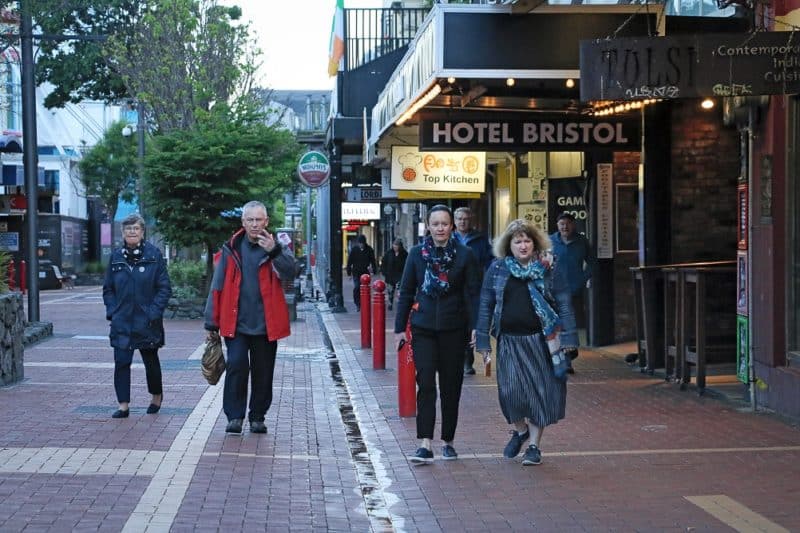Each morning, I start my day with a walk around inner city Wellington. The inner city looks different at 5am, with mainly early morning workers and some rough sleepers on the streets, compared with later in the day, when the city is bustling with activity.
My early morning walk is a time of prayer, and I am grateful that it gives me a brief perspective into lives that might not always be visible. By the time the sun has risen, the rough sleepers have packed up their belongings, and will have moved on to the Compassion Soup Kitchen or other social services in the city. However, some glimpses of the overnight city remain — people on the footpath asking for food or cash, and people collecting cans, cigarette butts or even discarded food from rubbish bins.
Most poverty in New Zealand is invisible. Unlike many parts of the world, the lives of most people living in financial hardship cannot be seen from the main streets. The poverty of the suburbs, where beneficiaries and workers worry about how to pay bills and put food on the table, happens behind closed doors.
But there are still glimpses of our unequal society on the streets of central Wellington during the daytime, and equally there are always some voices raised seeking to ban buskers and beggars and to block access to bins where food is discarded.
In his message for the World Day of the Poor, which the Catholic Church marked on Sunday, November 17, Pope Francis speaks of seeing people rummaging through garbage bins in search of something to live on or to wear, and themselves becoming seen as part of a human garbage bin, of being treated like refuse.
Pope Francis says: “Frequently judged parasites on society, the poor are not even forgiven their poverty.
Judgement is always around the corner. They are not allowed to be timid or discouraged; they are seen as a threat or simply useless, simply because they are poor.”
Pope Francis’ origins in Buenos Aires, and his current situation in Rome, are different to ours in Wellington.
Poverty can be more in your face in the streets of South America and Europe than here in New Zealand. But, sadly, the attitudes towards people experiencing poverty can be very similar. New Zealand has an enduring thread of judgemental attitudes towards homeless people, rough sleepers and beneficiaries, as seen in regular outbreaks of vitriol towards those of
our neighbours who have it rough.
Pope Francis asks us to overcome these gaps between rich and poor — not just through welfare programmes and inclusive public policies, as important as these are — but, more significantly, by reaching out ourselves to welcome a stranger, or to listen to a neighbour.
He reminds us that the poor are not statistics to be cited, but persons to be encountered.
The parishes, communities and agencies of our Catholic Archdiocese of Wellington have together restated our commitment to reach out as a community to people living on the margins and peripheries. That requires a change of direction, a change of heart, and a different approach to everything we do. We are still finding our way, but we invite all our neighbours to join us.
During the week leading up to the World Day of the Poor, I invited people to join me in this examination of conscience: when we see a homeless person sleeping on the streets, or someone looking through gutters or rubbish bins, or asking for spare change, before rushing to any judgement, let’s take a moment to look into our own hearts and to check the expression on
our faces.
If there isn’t a smile there, before offering a judgement or anything else, let’s think about offering first a smile.
An article by Cardinal John Dew, Archbishop of Wellington, to mark World Day of the Poor, Sunday, November 17.

Reader Interactions